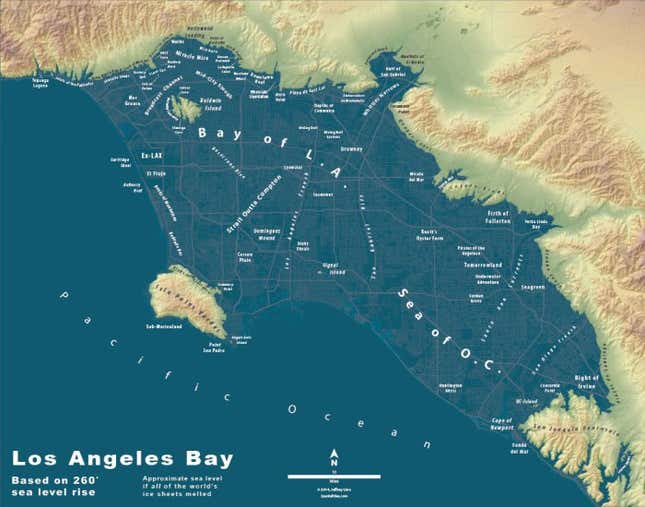
This article has been corrected.
Remember Waterworld, the extravagant 1995 dystopian Hollywood flop that imagined Earth after the polar ice caps melted, with humans living on what looked like floating junkyards? You might not be growing gills and webbed feet a la Kevin Costner anytime soon, but your great-great-great-great-great children might have to worry about finding dry land.
The United States Geological Survey estimates that if the ice sheets located in the Antarctic and Greenland melt as a result of climate change, sea levels could rise up to 80 meters (approx. 262 feet). Jeffrey Linn, a Seattle-based urban planner who is between jobs, decided to use some of his spare time to show how this climate apocalypse would affect a number of cities in North America.
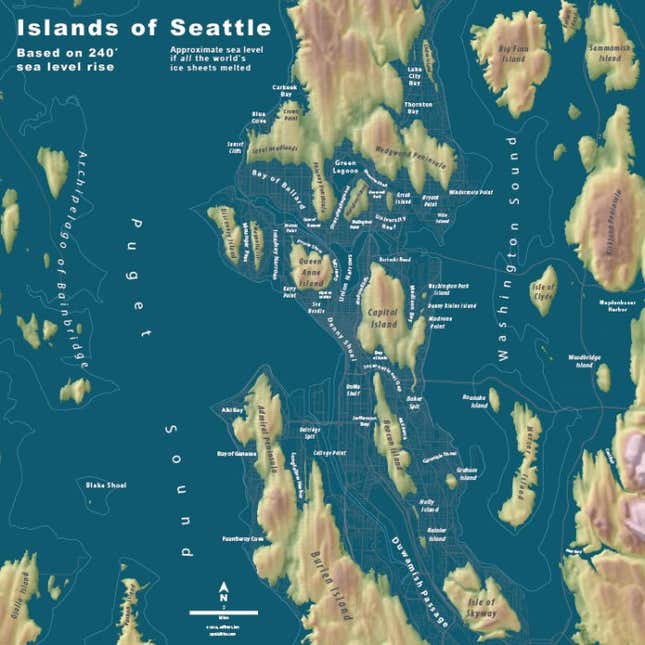
Linn was inspired by a post on a website called Burrito Justice that envisioned San Francisco under water. In this slightly morbid exercise, Linn makes up imaginative names for the islands and inlets that would remain of Los Angeles, Seattle, Portland, Vancouver or Montreal.
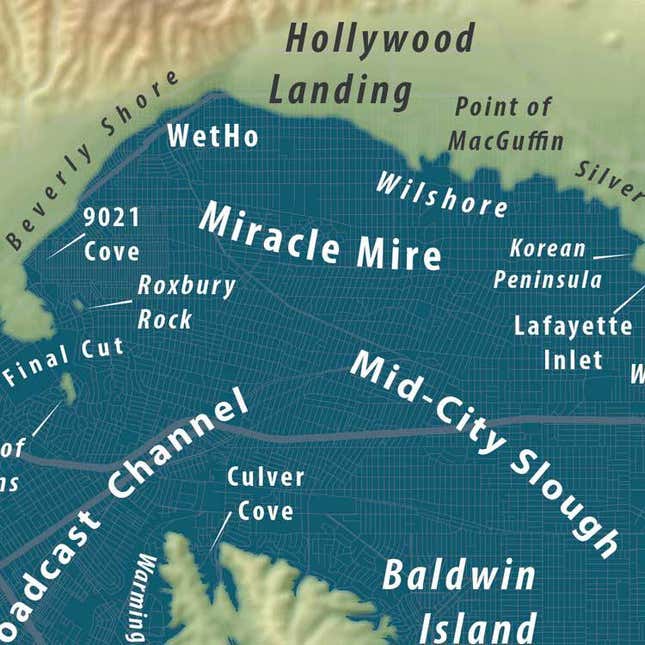
He used USGS data on sea level rise, and says on his website, Spatialities.com, that he is not showing anything outside the realm of possibility, even if his predictions look dire.
“This will happen someday, but not in our lifetimes,” Linn writes, pointing out that timeline predictions vary widely, leaving any estimates with huge margins of error. So don’t worry, the human race could have anywhere from 1,000 to 10,000 years to enjoy our time on dry land.
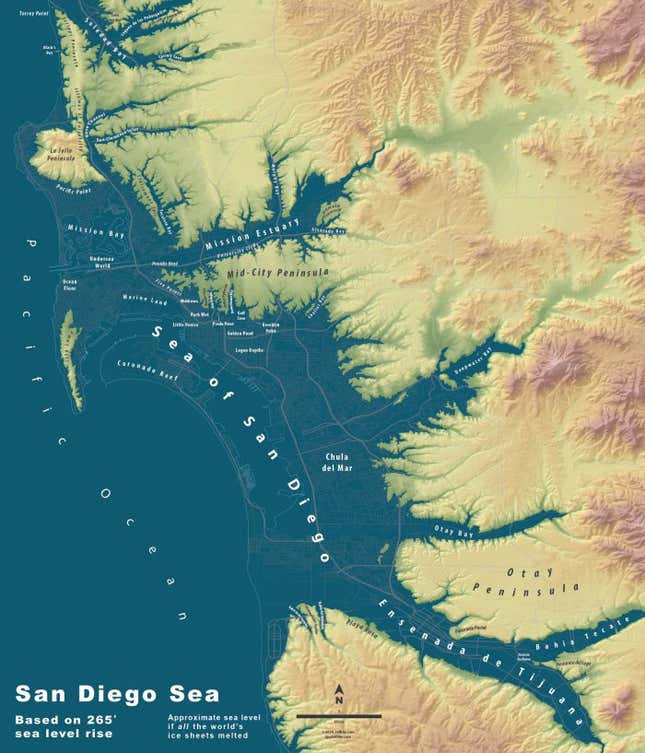
“The debate over how fast the ice sheets are melting is an academic one, really,” Greg Hanscom writes in his post about the project on Grist. But he also points out that some say the sea level could rise by up to 16 feet by the end of this century.
“What fascinates me the most about this project is the landforms, bays, seas and other geographies that emerge,” Linn writes.
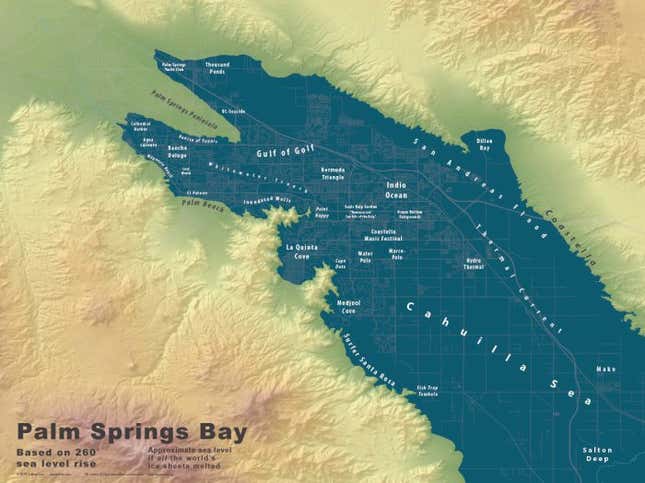
Linn even indulges in a bit of speculation about the kind of swashbuckling tribalism that might emerge in his scenario. “I think the islands will be inhabited by pirates—tribes of Queen Ann islanders and Capitol Hill islanders living in shaky détente, with occasional forays on each others’ territories.”
Again, see: Waterworld.
(Correction, Dec.5, 2014): A previous version of this article misspelled Jeffery Linn’s name. It is spelled “Linn,” not “Lin.”